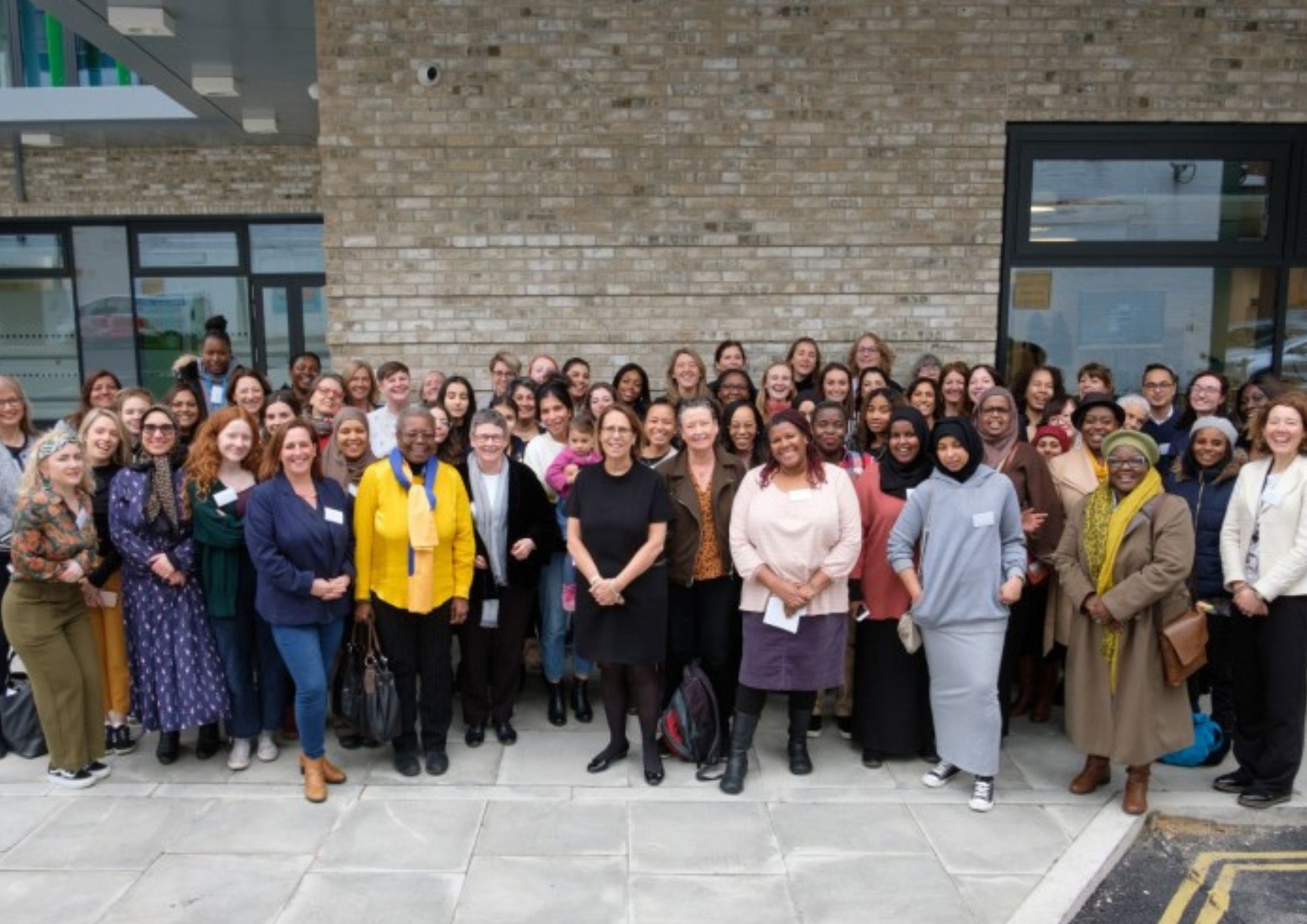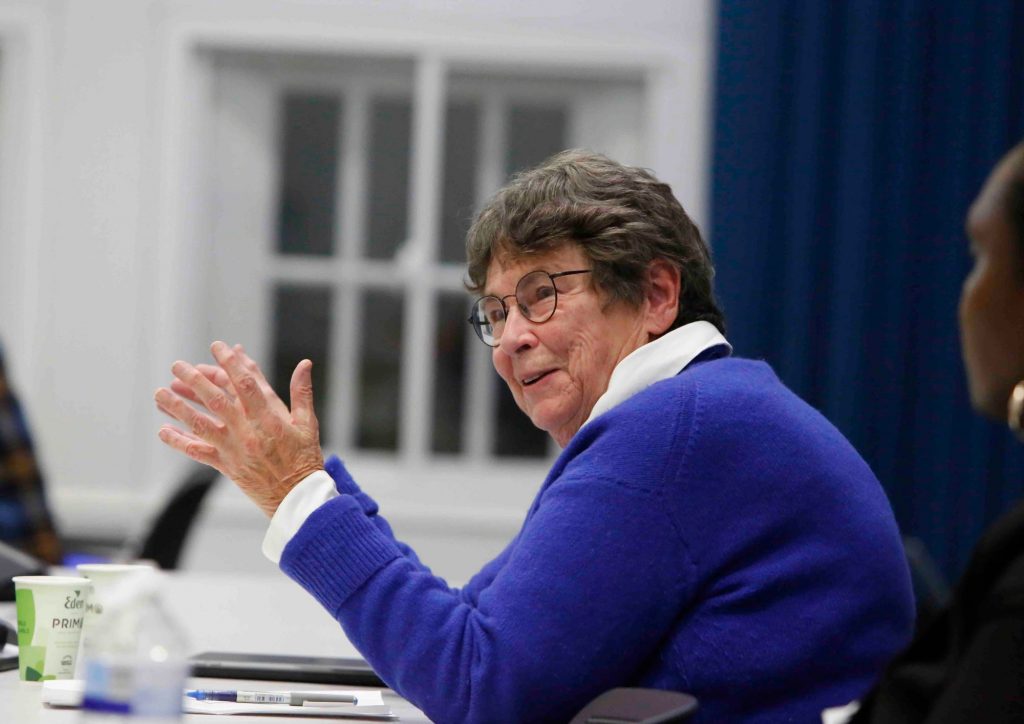Women are suffering on the front line of the cost-of-living crisis, report finds
Analysis comes from Camden Women's Forum interviews
Friday, 10th March 2023 — By Anna Lamche

The Camden Women’s Forum
WOMEN in Camden are “shock absorbers” on the front line of the cost of living crisis, as spiralling prices trap them in debt, force them to skip meals and accept precarious work, a devastating report has found.
And financial pressure means women experiencing domestic violence are also less able to escape their abusers, according to the research by the Camden Women’s Forum (CWF).
These are just a few of the many disturbing revelations brought to light after the independent CWF interviewed 100 women across the borough to discover the challenges they face.
Emerging from the report is a picture of women who still shoulder the burden of domestic labour on top of their – often insecure – paid work, bearing the responsibility for budgeting, cooking and cleaning, as well as keeping their families warm and fed.
Meanwhile, the aspirations of young mothers keen to return to their jobs are being thwarted by extortionate childcare costs, and a system riddled with gaps and shortcomings that swallows up over 70 per cent of a family’s weekly earnings in inner London.
Women with children in school are being pushed into debt as they struggle to afford the price of school uniforms, and dwindling funds mean many children are unable to participate in the extracurricular activities such as swimming, music and field trips they once enjoyed.
“Parents with money can buy all of those things, and they’re very important for kids, especially kids living in overcrowded circumstances. Being able to exercise and go to sports – that’s all falling away. It’s going to make the divide between the most disadvantaged kids and families even wider,” said CWF co-chair Angela Mason.
Dependent on race, class and age, women are experiencing the crisis differently. As the report puts it, “the cost of living crisis does not affect women equally”, and it is typically poorer women and their children who feel the crisis most acutely.
For many women, the borough is becoming an increasingly inhospitable place to live.
“I remember one woman at Rhyl School who said: ‘I don’t think this is a good country to live in. I hope children will go somewhere else,’” Ms Mason said. “There was a strong feeling that it was not a good place to be, and that the opportunities for their children were being limited all the time, and life was just too hard.”
The report puts forward a raft of recommendations to insulate women from the worst of the crisis, including offering further support in the form of food and clothing vouchers to disadvantaged families; requiring Camden schools to review their school uniform policies to make them cheaper; and providing more support for children being locked out of extracurricular activities.
Other suggested measures include the extension of flexible working hours for council employees and those working in local businesses, and exploring ways to develop affordable childcare within the borough, as well as supporting vulnerable women with the price of transport.
CWF also calls for changes at a national level, including “an end to austerity”, boosted child benefit support and a fully funded childcare system for children under five years old, among other suggestions.

Angela Mason
Ms Mason hopes to see “changes around childcare and flexible working” in the upcoming Budget.
“Net childcare costs represent almost a third of the income of a family on the average UK wage compared with as little as 1 per cent of income in Germany,” she said. “We know how expensive it is, [and state support] doesn’t cover nought to two [years old], and then it’s still fragmentary afterwards.”
Ms Mason, who has “been working on some domestic violence issues for years and years”, said: “I think there’s a sense of urgency about the situation now, partly because things are so bad. I think it’s particularly bad at the moment because women are always far more dependent on a more buoyant labour market and also on social and public services, and both of those are in quite dire straits at the moment.”
Meanwhile, CWF co-chair Helene Reardon-Bond said: “Women are the shock absorbers of the cost of living, and they’re in the front line, still in this day and age, trying to manage the budgets, do most of the shopping and the caring.
“It’s so interesting, the lengths that [women] went to juggle the budgets and not to put it on their own children. Rather than saying, ‘We can’t afford meat any more’, they’d say: ‘Our curries are going to be with lentils because it’s more healthy.’
“Many of the women are single parents, so they’re doing caring jobs or cleaning despite being well-qualified, and they take those jobs to juggle around their children. Some women were saying, ‘I finish work at four o’clock in the morning so that I can get my kids off to school, and then I go to sleep.’”
The financial crisis is also causing a simultaneous crisis in women’s mental health, Ms Reardon-Bond said, noting “the constant anxiety of trying to make ends meet”, adding urgent action must be taken both at the local and national level to avoid things “going backwards”.
“Without a doubt, this will mean things will slip backwards,” she said.